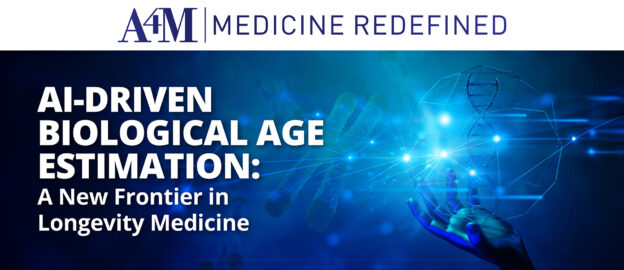As the field of longevity medicine advances, the focus is shifting from merely tracking chronological age to understanding and influencing biological age. Recent developments in artificial intelligence (AI) have introduced innovative methods for estimating biological age, offering clinicians new tools to assess and potentially intervene in the aging process.
The Emergence of AI in Biological Age Assessment
Traditional markers of aging, such as telomere length and epigenetic clocks, have provided insights into the biological aging process. However, AI-driven models are now enhancing these assessments by analyzing complex datasets to predict biological age with greater accuracy.
For instance, researchers at the University of Washington have developed the Health Octo Tool, which utilizes eight clinical and bloodwork metrics to estimate a person’s biological age and predict their risk of disability or death. This tool introduces concepts like “health entropy” and assigns a “body organ disease number” to assess the condition and aging rate of individual organs, achieving over 90% accuracy in predicting age-related outcomes like functional decline and mortality.
Clinical Implications for Longevity Practitioners
The integration of AI-driven biological age estimation tools into clinical practice offers several potential benefits:
Personalized Interventions: By accurately assessing biological age, clinicians can tailor interventions to the individual’s aging profile, potentially improving outcomes in age-related diseases.
Monitoring Treatment Efficacy: Tracking changes in biological age over time can help evaluate the effectiveness of interventions aimed at slowing or reversing aspects of aging.
Risk Stratification: Identifying patients with accelerated biological aging can aid in early intervention and preventive strategies.
Challenges and Considerations
While promising, the adoption of AI-based biological age estimation tools requires careful consideration:
Data Privacy: Ensuring the confidentiality and security of patient data used in AI models is paramount.
Validation and Standardization: Further research is needed to validate these tools across diverse populations and clinical settings.
Integration into Practice: Clinicians must be trained to interpret and apply AI-derived insights effectively within the context of comprehensive patient care.
Conclusion
AI-driven biological age estimation represents a significant advancement in the pursuit of extending healthspan and lifespan. By embracing these technologies, clinicians in the field of longevity medicine can enhance their ability to assess aging processes and implement personalized strategies to promote healthy aging.
Sources:
The Times: I’m 52. My biological age is 32. Can that be true?
Science Daily: Transforming longevity research: AI paves the way for personalized treatments in aging science

